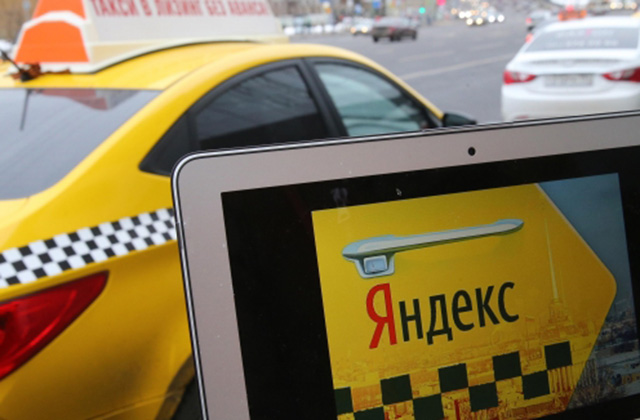
Taxi-Taxi: towards “Minimal” Profit

Major topic for discussion of Armenian community of Facebook on Sunday was not football, but the speech by Khachatur Grigoryan, founder of “gg” taxi service at Barcamp Yerevan.
Armenian community of Facebook was separated into two groups: some of them considered that the speech and presentation was rather unsuccessful, with an approach peculiar to the loser, as a result of which number of users of “gg” will decrease. The other part, just the contrary, considered the emotional speech was justified and it shouldn’t be allowed that Yandex Taxi forced other players of the market into bankruptcy through damping and become a monopolist.
It became known in early April that in near future a new company will appear in the Armenian market of online taxi service providers represented by Yandex Taxi. The latter is Russia’s biggest online taxi service, operates in 15 Russian cities and in Minsk. It’s actively extending its geography, keeping CIS countries in the center of its attention as well. Elina Staviskaya, head of PR projects of the company, said that at the initial stage service provided by them will be available only in Yerevan, then they plan to engage other cities as well. Moreover, representative of the company stated, that they are observing the possibility of purchasing local online service providers. Naturally, companies functioning in the Armenian market weren’t enthusiastic with entrance of the new player, however, worries were not so evident.
On Saturday Daniel Shuleyko, representative of Yandex Taxi, opened some brackets at Barcamp Yerevan, stating that service will be provided from July 1. And the most discussed point was the tariff proposed by Yandex Taxi. Instead of AMD 500-600 minimal payment established long ago in Armenian taxi service market, or as it’s adopted to say instead of the “minimal” this company offers “minimal” of AMD 100. That is, for the first 2km the passenger pays AMD 100 (AMD 50 for each kilometer), and then AMD 100 for each next kilometer. This is already a challenge.
And it wasn’t surprising that many immediately supposed that due to its greatness and resources Yandex is going to price damping, i.e. by offering a reasonable low price it’ll force local players of the market into bankruptcy, become a monopolist and raise the prices. And aggressive entrance of Yandex into the market, naturally, played a role, that speech by the representative of “gg” taxi the next day was rather sensitive. Main stress was patriotism, that one shouldn’t allow for a few pennies, that Russian company swallowed local business.
This speech by the “gg” founder was more discussed, than that of Yandex taxi, from content to formulations and intonation. The next big online taxi service providing company—MobiTaxi, hasn’t publicly expressed a standpoint yet, however, it’s not difficult to suppose that they also observe risks there.
One of the main reasons is reduction of taxi service market, where even less space is left for the players.
How big is the market? The representative of Yandex, for instance, mentioned in his speech that there are about 25 thousand taxi service providers in Armenia, half of which isn’t registered. This, of course, is the result of their survey, and it’s difficult to say how close it’s to the reality.

Official statistics also published some data on taxi service market. In particular, National Statistical Service (NSS) periodically publishes data on transport, where volume of passenger transportation through taxis is observed as well (number of passengers transported by taxis). Statistics of recent 9 months is introduced in the Chart (2007-2015). Thus, it’s becoming clear why market players are so sensitive towards entrance of new contesters.
As it’s observed, volume of passenger transportation throughout 2015 comprised 10.3 million people. The previous year—in 2014, number of taxi passengers comprised 12.7 million and prior to that this number was even more. Number of taxi passengers was the most in 2010—more than 18 million, and after it constant decrease was recorded. Moreover, falling tendency continues in 2016 as well—23.8 million passenger-km, which is less by ¼ from the index for the same period of the previous year.
Of course, it’s difficult to understand to which extent this number of NSS reflects the reality (on account of shadow), however, it doesn’t prevent to observe changes. Reasons are quite different—migration, decrease of purchasing capacity or increase of car owners. The fact is that the market has shrunk in the period of recent years. And taking numbers of NSS as a basis, it may be approximately calculated, that annual volume of taxi service market comprises AMD 9.5-10 billion (USD 20-21 million).
The third fact is that parallel to market reduction, number of market participants (number of taxis) has increased. It has increased mainly on account of individual taxi drivers, i.e. competition has become heated. On the other hand, parallel to all this, share of online taxis has considerably increased.
Online taxis don’t possess their own auto parks and operate with individual drivers possessing their own cars. And it turns out, that as a result of competition escalation and market reduction traditional taxi service providers suffered the most. Online taxi service providers succeeded to take a considerable part of the market, as contestants weren’t developing. And now the third stage of evolution has come—a new, powerful contestant is entering the market, which is not an ordinary taxi service, it has serious skills, team, experience and resources. It comes to grasp its share from the shrinking cake. And it’ll grasp not from individual taxi drivers and traditional taxi service providers, but from online ones.
How should we fight against it? Of course, by competing, proposing wider and high-quality service. However, there was impression from the speech by “gg” co-founder, that he stresses patriotic feelings of passengers—make use of our service, as it’s Armenian. Shifting this issue to political, moral and patriotic field may be perceived by the many as indirect confession of weakness.
Besides, if the company pursues the purpose to enter a market of other countries, it should forget on military-patriotic aspect, as in other country it may be used against itself. It’s not excluded that this step by “gg” is a marketing skill: to show that you are weak, that you worry and got into panic, however, in fact, get ready for the competition and surprise the new contestant with a new toolset. Finally, history of “gg” edifies that it has a creative and purposeful team, which had more than two months to get ready for the challenge.
So, it’s difficult to say who will benefit or lose in the escalating competition. The only party to benefit from the competition is the passenger, as competition brings more reasonable prices and more qualified service.
By Babken Tunyan























